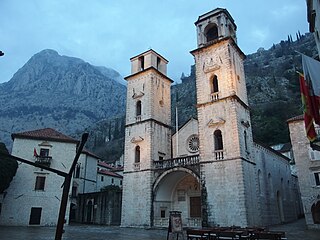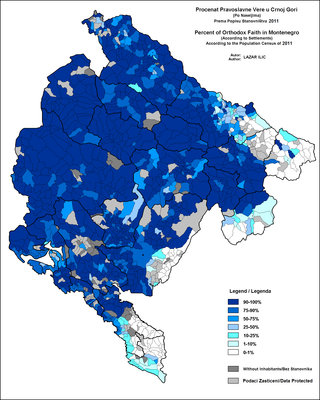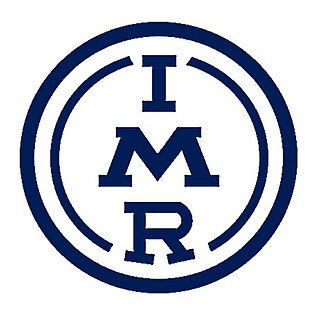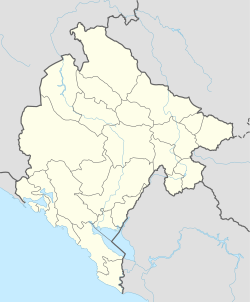
Montenegro is a country in Southeastern Europe, on the Balkan Peninsula. Its 25 municipalities have a total population of 633,158 people in an area of 13,812 km². It is bordered by Bosnia and Herzegovina to the northwest, Serbia to the northeast, Kosovo to the east, Albania to the southeast, Croatia to the west, and has a coastline along the Adriatic Sea to the southwest. The capital and largest city is Podgorica, while Cetinje is the Old Royal Capital and cultural centre.

The State Union of Serbia and Montenegro or simply Serbia and Montenegro, known until 2003 as the Federal Republic of Yugoslavia, FR Yugoslavia (FRY) or simply Yugoslavia, was a country in Southeast Europe located in the Balkans that existed from 1992 to 2006, following the breakup of the Socialist Federal Republic of Yugoslavia. The state was founded on 27 April 1992 as a federation comprising the Republic of Serbia and the Republic of Montenegro. In February 2003, it was transformed from a federal republic to a political union until Montenegro seceded from the union in June 2006, leading to the full independence of both Serbia and Montenegro.
Montenegrin is a normative variety of the Serbo-Croatian language mainly used by Montenegrins and is the official language of Montenegro. Montenegrin is based on the most widespread dialect of Serbo-Croatian, Shtokavian, more specifically on Eastern Herzegovinian, which is also the basis of Standard Croatian, Serbian, and Bosnian.

The Serbia men's national football team represents Serbia in men's international football competition. It is controlled by the Football Association of Serbia, the governing body for football in Serbia.

Leposavić, also known as Leposaviq or Albanik, is a town and the northernmost municipality in the Mitrovica District in Kosovo. As of 2015, it has an estimated population of 18,600 inhabitants. The municipality covers an area of 539 km2 (208 sq mi) which makes it the fifth largest in Kosovo, and consists of the town and 72 villages.

An independence referendum was held in Montenegro on 21 May 2006. It was approved by 55.5% of voters, narrowly passing the 55% threshold. By 23 May preliminary referendum results were recognized by all five permanent members of the United Nations Security Council, suggesting widespread international recognition if Montenegro were to become formally independent. On 31 May the referendum commission officially confirmed the results of the referendum, verifying that 55.5% of the population of Montenegrin voters had voted in favor of independence. Because voters met the controversial threshold requirement of 55% approval, the referendum was incorporated into a declaration of independence during a special parliamentary session on 31 May. The Assembly of the Republic of Montenegro made a formal Declaration of Independence on Saturday 3 June.

The Montenegro national football team has represented Montenegro in men's international football since 2007. It is controlled by the Football Association of Montenegro, the governing body for football in Montenegro. Montenegro's home ground is Podgorica City Stadium in Podgorica.
The Football Association of Serbia and Montenegro was the governing body of football in Serbia and Montenegro, based in Belgrade. It organized the First League, the national team, the domestic cup as well as the Second Leagues of both republics.
The Serbia and Montenegro national football team was a national football team that represented the State Union of Serbia and Montenegro. It was controlled by the Football Association of Serbia and Montenegro. For 11 years, it was known as the FR Yugoslavia national football team when the state was called the Federal Republic of Yugoslavia, until February 2003, when the name of the country was changed to Serbia and Montenegro. In 2006, Montenegro declared its separation from Serbia, with the result that the country's football team was renamed as the Serbia national football team on 28 June 2006 with the Montenegro national football team created to represent the renewed state of Montenegro.
The Serbia and Montenegro men's national basketball team also widely known as the FR Yugoslavia men's national basketball team, represented Serbia and Montenegro in international basketball competition, from 1993 to 2006. It was governed by the Basketball Federation of Serbia and Montenegro.

Eastern Orthodox Christianity is the largest religion in Montenegro at 71% of the population, and is the religion of choice for the vast majority of ethnic Montenegrins and Serbs. In addition to Eastern Orthodox Christianity, there is also a sizeable number of adherents to Sunni Islam at 20% of the population, mainly from ethnic Bosniaks and Albanians.

The Serbian Super League, stylized as Mozzart SuperLiga for sponsorship reasons, is a Serbian professional league for football clubs.

Eastern Orthodoxy in Montenegro refers to adherents, religious communities, institutions and organizations of Eastern Orthodox Christianity in Montenegro. It is the largest Christian denomination in the country. According to the latest 2023 Census of Montenegro, 443,394 citizens of Montenegro (71.10%) registered as Eastern Orthodox Christians. The majority of Eastern Orthodox people in Montenegro are adherents of the Serbian Orthodox Church. A minor percentage supports the canonically unrecognized Montenegrin Orthodox Church, which has the status of a religious non-governmental organization since its founding in 1993.
The Serbia national under-19 football team is the national under-19 football team of Serbia and is controlled by the Football Association of Serbia. The team is considered the successor to the Serbia and Montenegro national under-19 football team, which in turn was the successor to the Yugoslavia national under-19 football team.
Miss Montenegro is a national beauty pageant in Montenegro.
Tešan Podrugović was Serbian merchant, hayduk, storyteller and gusle player who participated in the First Serbian Uprising and Second Serbian Uprising. He was one of the most important sources for Serbian epic poetry recorded by Vuk Karadžić. Podrugović did not sing but used to 'speak' his poems; he understood and felt the poems and thought about what he said. He was Serbia's best known fiddle player (guslar) after Filip Višnjić.
General Vuča or General Vuka is a popular legendary hero of Serbian epic poetry who is depicted as an enemy of Kraljević Marko.

Serbs of Montenegro or Montenegrin Serbs, compose native and the second largest ethnic group in Montenegro, after the ethnic Montenegrins. Additional 0.47% of the population is made up of Serbs-Montenegrins and Montenegrins-Serbs.

Industrija Motora Rakovica was an agricultural machinery manufacturer based in Rakovica, Belgrade, Serbia. Originally founded in 1927 as Zadrugar, they build tractors and engines. The engines are based on originally licensed Perkins engine models. Some of the tractors were based on Landini and Massey Ferguson models, originally licensed.











